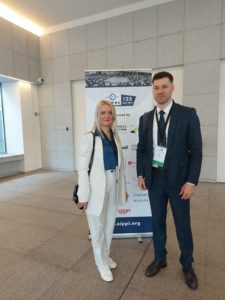To cut long story short – nothing is wrong. The recent series of decrees have added Russia to the list of free markets including the US, UK, US, Australia, Canada, China and Japan, where parallel import has already been working for many years (with country-specific unique features, but still) .
So, how is Russian parallel import different from other countries?
The recent Federal Law No. 213-FZ[1] of 28 June 2022 set out the new IP rights exhaustion model in Russia. Previously, like in the EU, Russia applied regional model effective in the countries of the Eurasian Economic Union. From now on, the international principle comes on the scene. The Law will be effective by the end of 2022 with a possibility for further extension.
This newly introduced system has several nuances. First of all, it affects only some of goods that will be allowed for parallel import. The list of the “chosen ones”[2] includes digital devices, clothing, industrial and domestic equipment, cosmetics, raw materials etc. – 56 categories in total – and also names exact brands, such as Volvo, Tesla, Xbox, urban Decay, Electrolux, Dyson etc.
Another specific feature is flexibility. It seems that brands can pull out from the list if they guarantee direct import of goods or continuation of manufacture on local factories. For example, Nivea, Rexona, Vanish, Domestos, Cillit, Dosia, Tiret, Nescafe, Nespresso are said to have requested to exclude their brands from the list, while Siemens, BMW and Lego in contrast have joined the “club” after deciding to leave the market.
Several online retailers expressed an idea that parallel import should not be exclusive and that it would benefit the consumers and retailers if all categories of products were available for such import.
It is a good question indeed, whether parallel import is beneficial at all and to whom. On the one hand, it creates a more competitive market landscape, and consumers have access to the products they need. The original manufacturers also have revenue increase from sales in Russia even if no direct distribution takes place, which will compensate to a certain extent the financial losses caused by sanctions and logistic complications.
On the other hand, parallel import makes it more difficult for the manufacturers to control prices and stay competitive, regulate the quality of goods and block counterfeit, while for consumers it might be challenging to get warranty service and distinguish between original and counterfeited goods.
Under the current circumstances, the suggested model of selective and temporary parallel import aims to serve interests of the domestic market, local consumers and manufacturers of original goods. As for the drawbacks mainly consisting in expected flow of forged goods, there are several available and useful tools against infringements, such as constant monitoring of the market, sending CDLs, filing complaints with the marketplaces and entering trademarks into Customs Registries of the countries forming the Eurasian Economic Union.
[1] Federal Law N 213-Fz of June 28, 2022 “On amending Article 18 of the Federal Law “On amending certain legislative acts of the Russian Federation”
[2] The list was determined by the Decree of the Ministry of Industry and Trade No. 1532 of 19 April 2022

